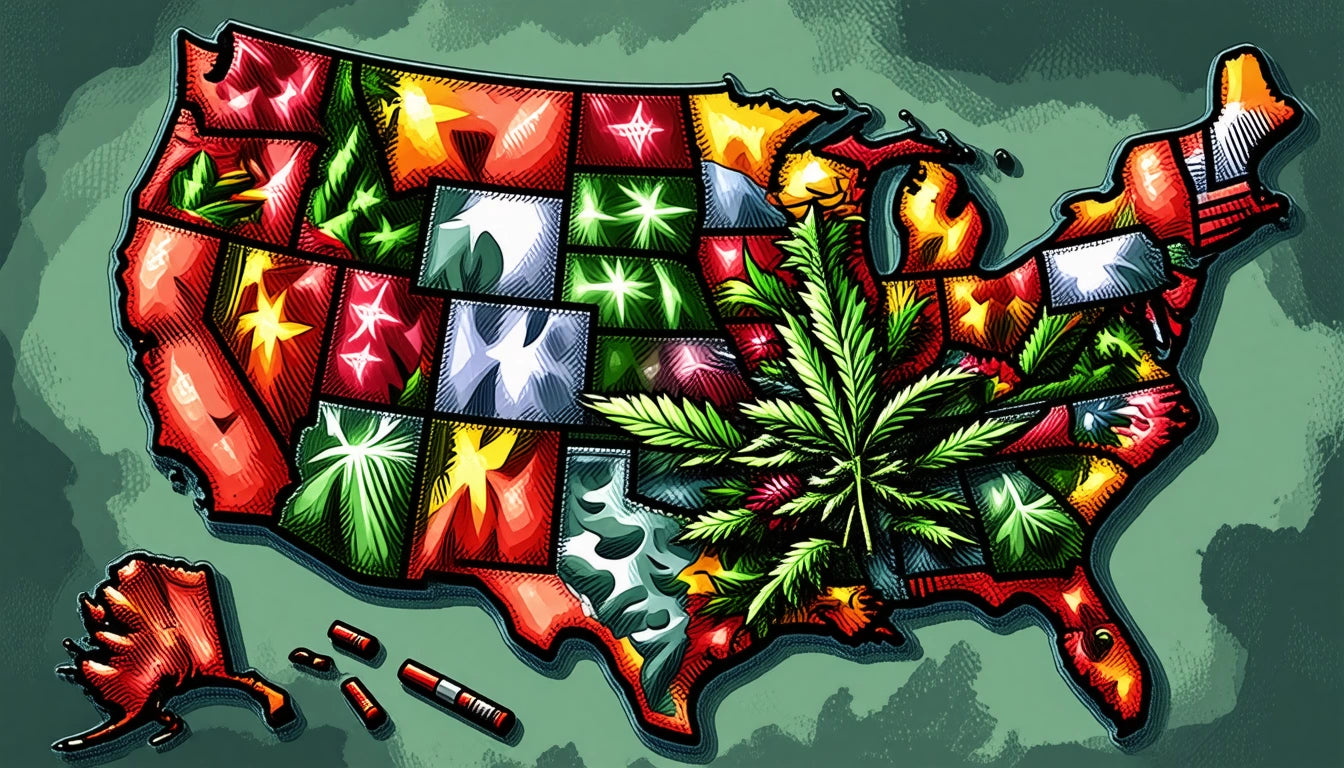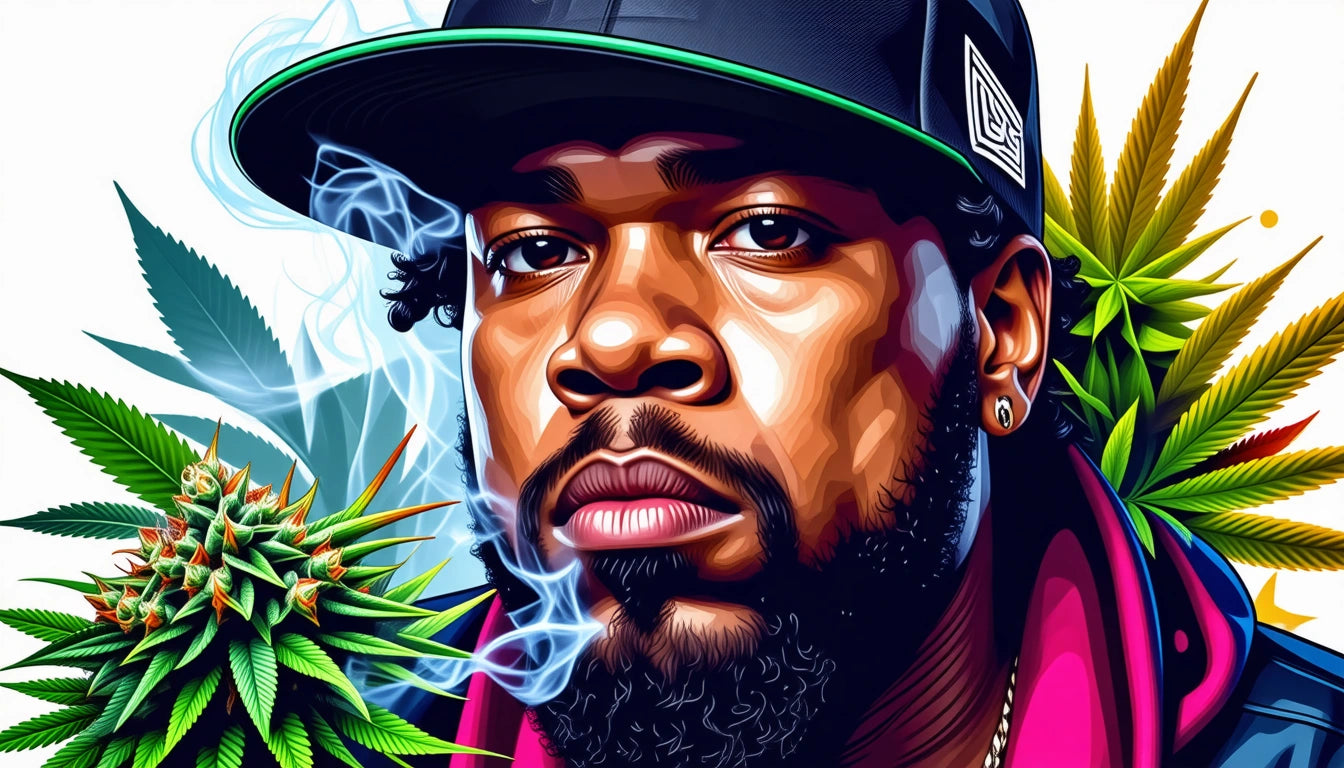Table of Contents
Which States Still Have Marijuana Illegal?
Despite the growing wave of cannabis legalization across America, many states still maintain strict prohibitions on marijuana use, possession, and sale. Understanding what states is weed illegal in remains crucial for consumers, businesses, and travelers to avoid legal complications. This comprehensive guide examines the current status of marijuana legality across the United States, with special focus on regions where cannabis remains prohibited.
Current Marijuana Legality Landscape in the US
The legal status of cannabis in America presents a complex patchwork of regulations that vary dramatically from state to state. While many states have legalized recreational cannabis, others maintain strict prohibitions or offer only limited medical access. This fragmented approach creates significant confusion for consumers and businesses operating across state lines.
Currently, marijuana legality falls into four main categories:
- Fully legal states (recreational and medical use permitted)
- Medical-only states (only medical use with proper documentation)
- Decriminalized states (reduced penalties, typically civil fines for possession)
- Fully illegal states (criminal penalties for possession and use)
States Where Marijuana Remains Fully Illegal
As of 2023, several states maintain complete prohibition on cannabis, making it illegal for both recreational and medical use. In these states, possession can result in criminal charges, fines, and potential incarceration.
States with Complete Marijuana Prohibition:
- Idaho
- Wyoming
- Kansas
- South Carolina
- Tennessee
- North Carolina (though partially decriminalized)
In Idaho, for example, possession of any amount of marijuana is a misdemeanor punishable by up to one year in jail and a $1,000 fine. The state maintains some of the strictest anti-cannabis laws in the country, with no medical exceptions and zero tolerance for THC content.
Medical-Only States: Limited Legal Access
Several states have approved medical marijuana programs while maintaining recreational prohibition. In these regions, qualifying patients with specific conditions can access cannabis through regulated programs, but recreational use remains illegal.
Notable medical-only states include:
- Alabama
- Arkansas
- Florida
- Georgia (limited low-THC oil only)
- Kentucky
- Louisiana
- Mississippi
- Oklahoma
- South Dakota
- Texas (limited low-THC program)
- Utah
- West Virginia
These medical programs vary dramatically in scope and accessibility. While Oklahoma has one of the most liberal medical programs, Texas offers only limited access to low-THC cannabis products for a restricted list of qualifying conditions.
Decriminalized but Not Legal States
Some states have taken an intermediate approach by decriminalizing marijuana possession without fully legalizing it. In these states, small amounts for personal use typically result in civil penalties (similar to traffic tickets) rather than criminal charges.
Notable states that have decriminalized but not legalized cannabis include:
- Nebraska
- North Carolina
- Ohio (recently voted on recreational legalization)
For cannabis businesses and consumers, this distinction is important. In these regions, while criminal penalties may be reduced, marijuana remains technically illegal, and no regulated market exists for legal sales. For cannabis product manufacturers, this impacts packaging requirements as well. Many businesses prepare for eventual legalization by investing in compliant packaging solutions for standard quantities like eighth-ounce portions that meet both current and anticipated regulations.
The Federal-State Legal Conflict
A critical aspect of understanding what states is weed not legal in requires acknowledging the federal-state conflict. Despite state-level legalization, marijuana remains classified as a Schedule I controlled substance at the federal level.
This creates numerous complications:
- Banking restrictions for cannabis businesses
- Interstate commerce prohibitions
- Potential federal prosecution (though rarely enforced in legal states)
- Employment and housing discrimination
- Federal property and land restrictions (including national parks)
Even in states where recreational cannabis is legal, federal prohibition means marijuana remains technically illegal on federal lands within those states, including national parks, military bases, and federal buildings.
This federal-state conflict explains how is weed federally illegal but legal in states, creating a legal gray area that continues to challenge businesses and consumers alike. The Department of Justice has generally followed a non-interference policy with state-legal markets, but this approach could change with different administrations.
The Rapidly Changing Legal Landscape
The map of what states are not legal for weed continues to evolve rapidly. Several states have pending legislation or ballot initiatives that could change their status in the coming years.
States with potential near-term changes include:
- Pennsylvania (considering recreational legalization)
- North Carolina (expanded medical program proposed)
- Nebraska (medical cannabis initiatives)
- Kentucky (expanded medical access)
For the most current information on what states are weed illegal in, it's essential to consult updated legal resources as the situation continues to evolve rapidly.
The trend clearly points toward increased legalization and decreased prohibition across the United States, with fewer states maintaining complete prohibition each year. This shifting landscape presents both challenges and opportunities for consumers, advocates, and businesses in the cannabis space.
Understanding the complex and changing nature of marijuana legality across different states remains essential for anyone involved with cannabis, whether as a consumer, business operator, or policy advocate. As federal reform discussions continue, the conflict between state and federal approaches may eventually resolve into a more coherent national policy.











Leave a comment
All comments are moderated before being published.
This site is protected by hCaptcha and the hCaptcha Privacy Policy and Terms of Service apply.